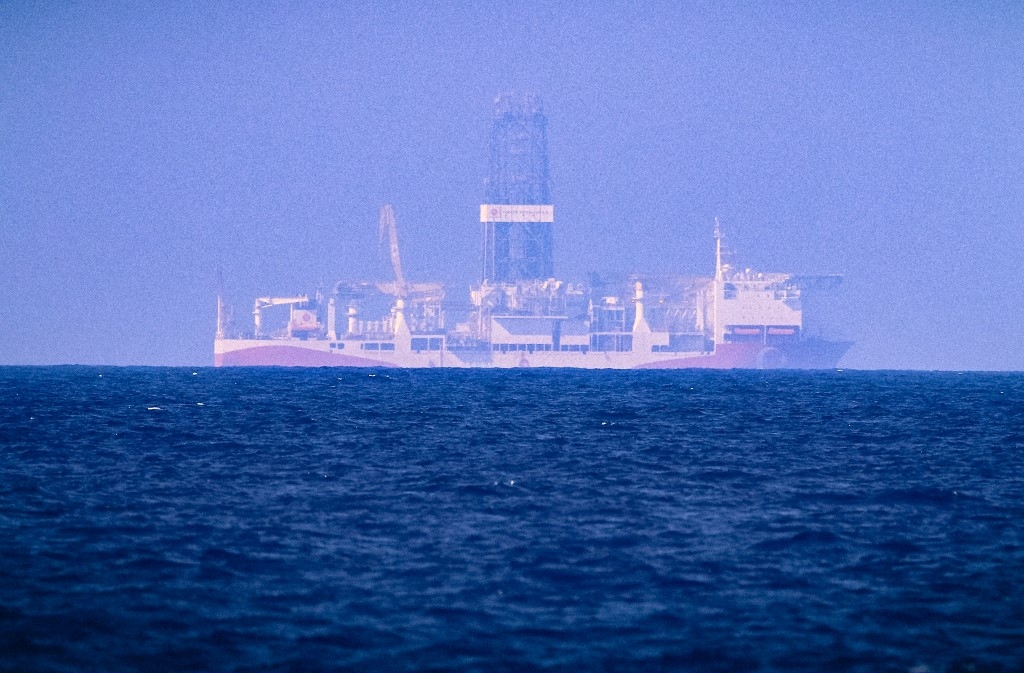Turkey declares Egypt-Greece maritime deal 'null and void'

Turkey has rejected an agreement made on Thursday between Egypt and Greece, which designates an area of the eastern Mediterranean sea containing promising oil and gas reserves as an exclusive economic zone.
Turkey's foreign affairs ministry said in a statement that there was no mutual sea border between Greece and Egypt, making the treaty "null and void".
"A maritime boundary between Greece and Egypt does not exist," the ministry said. "With respect to Turkey, the so-called maritime delimitation agreement signed today is null and void. This understanding will reflect on the ground and at the table.
"It is without a doubt that Turkey will not allow any activity at the area in question and will resolutely continue to defend its legitimate rights and interests as well as those of the Turkish Cypriots in the Eastern Mediterranean."
The deal between Greece and Egypt was first announced by Egyptian Foreign Minister Sameh Shoukry on Thursday during a joint press conference in Cairo with his Greek counterpart, Nikos Dendias.
"This agreement allows both countries to move forward in maximizing the utilisation of the resources available in the exclusive economic zone, especially promising oil and gas reserves," Shoukry said.
Dendias added: "The agreement with Egypt is within the framework of international law, respects all concepts of international law and the law of the sea and good neighbourly relations, and contributes to security and stability in the region."
Long-disputed territorial waters
Egypt and Greece have long been at odds with Turkey over territorial waters in the Mediterranean.
Last year, Turkey penned a maritime delimitation agreement with the internationally recognised Libyan government, in a move that escalated disputes over potential offshore gas reserves in the eastern Mediterranean.
Egypt and Greece condemned the deal as ”illegal” and a violation of international law.
Tensions were already high between Greece and Turkey because of Turkish gas exploration off the eastern coast of Cyprus, an island split between Greek and Turkish control since 1974, when Ankara invaded the north of the island in response to a military coup backed by Athens.
The NATO members are also at odds over mineral rights in the Aegean Sea.
Earlier this month, Egypt said that part of a seismic survey planned by Turkey in the eastern Mediterranean potentially encroached on waters where Cairo claims exclusive rights.
In June, the Palestinian Authority (PA) announced that it was ready to negotiate a maritime delimitation deal with Turkey and cooperate with Ankara on natural resources in the eastern Mediterranean on behalf of Gaza, which has a coastline along the eastern Mediterranean that makes it eligible for maritime rights.
Such a deal with the PA could further embolden Turkish attempts to minimise Greek ambitions to restrict Turkish activity into a tight coastline, analysts have said.
That same month, Greece and Italy signed an agreement on maritime boundaries, establishing an exclusive economic zone between the two countries and resolving longstanding issues over fishing rights in the Ionian Sea.
Middle East Eye delivers independent and unrivalled coverage and analysis of the Middle East, North Africa and beyond. To learn more about republishing this content and the associated fees, please fill out this form. More about MEE can be found here.





